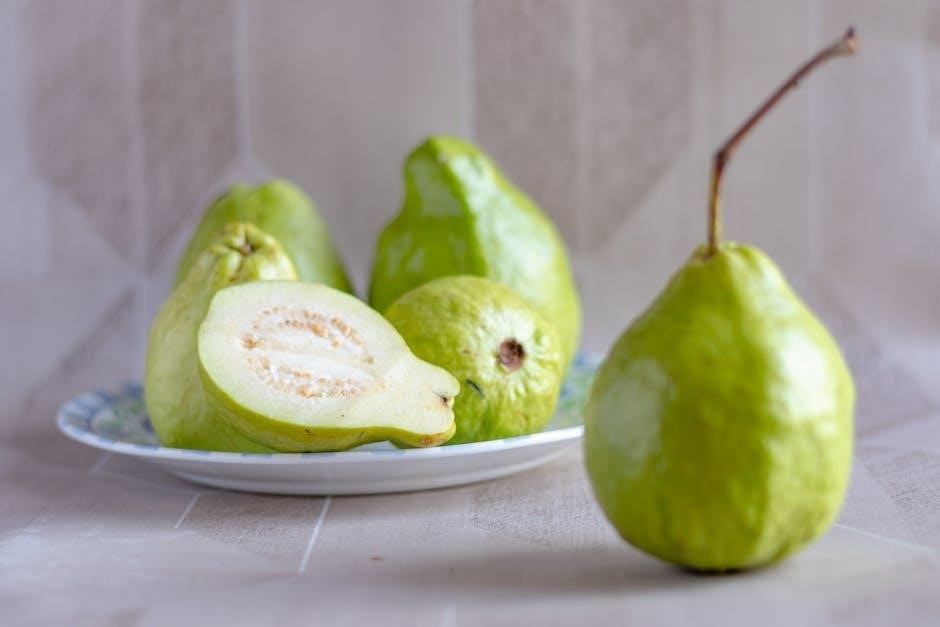Rigging assessments evaluate competency, covering basics, practical skills, and safety—often mirroring FAA Part 147 curricula and exam questions, available as PDFs․
What is a Rigging Test?
A rigging test comprehensively assesses an individual’s knowledge and practical abilities related to safe lifting and material handling practices․ These evaluations, often found as rigging test questions and answers PDFs, verify understanding of crucial concepts like sling selection, hitch types, load control, and regulatory compliance․ Tests frequently incorporate multiple-choice questions, mirroring those from programs like the FAA Part 147 curriculum․
Furthermore, practical demonstrations are common, requiring candidates to showcase proper inspection techniques and safe rigging procedures․ Passing signifies competence and adherence to industry standards, ensuring workplace safety and minimizing risks associated with lifting operations․
Importance of Rigging Certification
Rigging certification, validated through successful completion of tests – often accessible as rigging test questions and answers PDFs – is paramount for workplace safety and legal compliance․ Certification demonstrates a rigger’s proficiency in critical areas, reducing the risk of accidents, injuries, and equipment damage․
Many industries and regulatory bodies, including those referencing FAA Part 147 standards, mandate certification for personnel involved in lifting operations․ It also signifies a commitment to best practices, enhancing credibility and potentially lowering insurance costs․ Properly trained and certified riggers are invaluable assets․

Basic Rigging Knowledge – Testable Areas
Essential rigging knowledge, often found in rigging test questions and answers PDFs, includes sling types, load calculations, weight estimation, and understanding center of gravity․
Understanding Sling Types and Capacities
Rigging test questions and answers PDFs heavily emphasize sling knowledge․ Mastering sling types – wire rope, chain, synthetic (nylon, polyester, polypropylene) – is crucial․ Tests assess understanding of each type’s strengths, weaknesses, and appropriate applications․ Capacity calculations are vital; knowing Working Load Limits (WLL) and factors affecting them (angle, hitch type) is key․
Furthermore, understanding sling inspection criteria, identifying damage, and proper removal from service are frequently tested․ Many resources, including FAA materials, detail these aspects, preparing candidates for practical and written evaluations․ Correct sling selection directly impacts safety and lift success․
Calculating Sling Angles and Load Distribution
Rigging test questions and answers PDFs consistently feature sling angle calculations․ As the angle between sling legs decreases, the tension in each leg increases, exceeding the vertical load․ Understanding this principle is paramount․ Tests require calculating the effective capacity based on the angle, often using trigonometric functions․
Load distribution is also critical; knowing how weight is shared between multiple slings is essential for safe lifting․ Resources like FAA curricula provide formulas and examples․ Incorrect angle calculations or misjudging load distribution can lead to sling failure and serious accidents․
Load Weight Estimation and Center of Gravity
Rigging test questions and answers PDFs frequently assess the ability to accurately estimate load weight․ Underestimation can overload slings, while overestimation wastes resources․ Determining the center of gravity (CG) is equally vital for balanced lifts․ A load’s CG dictates its stability during movement․
Tests often present scenarios requiring CG calculation or identification․ Incorrect CG assessment can cause the load to shift, leading to instability and potential drops․ Resources emphasize using load charts and proper weighing techniques before any lift, as detailed in FAA materials․

Common Rigging Test Questions – Multiple Choice
Rigging test questions and answers PDFs commonly utilize multiple-choice formats, assessing knowledge of sling selection, hitch types, and load control principles for safe operations․
Question Types: Sling Selection
Sling selection questions within rigging test questions and answers PDFs frequently focus on determining the appropriate sling type – wire rope, chain, synthetic – based on load weight, hitch configuration, and environmental factors․ Expect scenarios requiring calculation of sling capacity considering angles and load distribution․ Questions assess understanding of sling markings, inspection criteria for damage, and proper load application techniques․ Many tests emphasize selecting slings with sufficient Working Load Limit (WLL) and adhering to manufacturer specifications․ Correct answers demonstrate a commitment to safe lifting practices and regulatory compliance, often referencing OSHA guidelines․
Question Types: Hitch Types and Efficiency
Rigging test questions and answers PDFs commonly feature scenarios evaluating knowledge of various hitches – vertical, choker, basket, bridle – and their respective efficiency ratings․ Questions probe understanding of how hitch configuration impacts sling capacity and overall lift safety․ Expect to calculate the effective sling capacity after accounting for hitch angles․ Assessments often require identifying the most appropriate hitch for a given load shape and lifting environment․ Correct responses demonstrate comprehension of how different hitches distribute weight and minimize stress on rigging components, adhering to industry best practices․
Question Types: Load Control and Stability
Rigging test questions and answers PDFs frequently assess understanding of load control and stability principles․ Expect questions concerning tag line usage for preventing load swing, proper load balancing techniques, and recognizing conditions that could compromise stability during a lift․ Scenarios often involve identifying potential hazards – uneven weight distribution, obstructions, or improper rigging – and selecting appropriate corrective actions․ Demonstrating knowledge of center of gravity, load shifting during lifts, and safe landing procedures are crucial for passing these assessments, ensuring operational safety․

Practical Rigging Demonstrations – Testable Skills
Rigging test questions and answers PDFs prepare you for hands-on evaluations of pre-lift inspections, sling application, and tag line control proficiency․
Pre-Lift Inspection Procedures
Rigging test questions and answers PDFs frequently emphasize thorough pre-lift inspections as a critical safety component․ These resources detail checking slings for damage – cuts, fraying, kinks, or corrosion – and verifying proper labeling indicating weight capacity․ Inspectors must also assess lifting hardware like hooks and shackles for deformation or cracks․
Documentation of inspection findings is often tested, alongside understanding rejection criteria․ PDF study materials highlight the importance of removing damaged equipment from service immediately and accurately recording any defects encountered before commencing any lifting operation, ensuring a safe working environment․
Proper Sling Application Techniques
Rigging test questions and answers PDFs consistently assess knowledge of correct sling application․ This includes understanding vertical, choker, and bridle hitches, and their respective efficiency ratings․ Materials often detail avoiding sharp bends that can damage slings and ensuring proper load engagement to distribute weight evenly․
PDF resources emphasize selecting the appropriate sling type for the load’s shape and weight, and avoiding dragging slings over abrasive surfaces․ Correct sling angle calculations are also frequently tested, as improper angles significantly reduce capacity․ Mastery of these techniques is vital for safe lifting․
Tag Line Usage and Control
Rigging test questions and answers PDFs frequently cover tag line procedures for controlling load movement and preventing rotation during lifts․ These resources emphasize the importance of personnel using tag lines maintaining a safe distance from the load and communicating clearly with the crane operator․
PDF study materials detail proper tag line material (non-metallic) and secure attachment methods․ Questions often assess understanding of when tag lines are required – particularly with asymmetrical loads or in windy conditions – to maintain stability and prevent swinging hazards during the lifting process․

Safety Regulations and Standards in Rigging
Rigging test questions and answers PDFs assess knowledge of OSHA regulations and ANSI standards, crucial for safe lifting operations and compliance․
OSHA Regulations for Rigging Operations
OSHA standards are paramount in rigging, and rigging test questions and answers PDFs frequently focus on these regulations․ Key areas include proper inspection of slings and equipment, ensuring adequate load ratings, and safe signaling procedures․ Understanding employer responsibilities for training and hazard assessment is also critical․ Many PDF resources detail requirements for qualified riggers, emphasizing competence and knowledge of applicable standards․ OSHA’s focus is preventing collapses and dropped loads, making these regulations central to safe rigging practices and exam preparation․ Compliance is non-negotiable for worker safety․
ANSI Standards for Lifting and Rigging
ANSI (American National Standards Institute) develops consensus standards vital for rigging safety, often reflected in rigging test questions and answers PDFs․ These standards cover sling usage, inspection criteria, and load handling procedures․ PDF study materials frequently emphasize ANSI’s detailed specifications for wire rope, chain, and synthetic slings․ Understanding proper hitch selection, load control, and the importance of regular equipment maintenance, as defined by ANSI, is crucial․ Adherence to these standards ensures consistent safety practices and is a key component of rigger certification exams․
Importance of a Rigging Plan
A comprehensive rigging plan is paramount for safe lifting operations, and knowledge of its components is frequently tested in rigging test questions and answers PDFs․ These plans detail lift procedures, equipment selection, and potential hazards․ PDF resources often include sample plans and questions assessing your ability to identify critical lift parameters․ Understanding load weight estimation, center of gravity, and sling angle calculations—all elements of a solid plan—is essential․ A well-documented plan minimizes risks and demonstrates a commitment to safety, often a key evaluation point․

Advanced Rigging Concepts – Testable Knowledge
Rigging test questions and answers PDFs often assess wire rope inspection, chain hoist maintenance, and mechanical advantage—critical advanced rigging skills․
Understanding Wire Rope Construction and Inspection
Rigging test questions and answers PDFs frequently delve into wire rope specifics․ Expect questions on construction – strand count, core type, and lay․ Crucially, inspection knowledge is tested; recognizing broken wires, corrosion, kinking, and birdcaging are vital․ Understanding acceptable wear limits, lubrication importance, and proper removal from service are common themes․ Assessments often cover terminology like FPS (feet per short ton) and WLL (working load limit) related to wire rope․ Mastery demonstrates a commitment to safe lifting practices, preventing catastrophic failures, and adhering to industry standards detailed within these resources․
Chain Hoist Operation and Maintenance
Rigging test questions and answers PDFs consistently assess chain hoist proficiency․ Expect inquiries regarding safe operating procedures, load weight calculations, and proper lifting techniques․ Maintenance is key; questions cover lubrication schedules, chain inspection for wear and damage (stretched links, corrosion), and hook integrity․ Understanding the difference between hand chain and lift chain is vital․ Assessments often probe knowledge of hoist capacities, duty cycles, and the importance of regular inspections to prevent failures․ Proper maintenance, as detailed in these resources, ensures longevity and safety․
Leverage and Mechanical Advantage
Rigging test questions and answers PDFs frequently examine understanding of leverage and mechanical advantage principles․ Expect problems requiring calculation of force needed for lifting, considering pulley systems and their efficiency․ Questions assess knowledge of how different rigging configurations impact the effort required to move a load․ Understanding the relationship between load, effort, and distance is crucial․ These resources emphasize the importance of selecting appropriate systems to minimize strain and maximize safety․ Mastery of these concepts, as tested in these PDFs, is fundamental to safe rigging practices․

Analyzing Rigging Test Results
Rigging test questions and answers PDFs help identify skill gaps; review scores carefully and utilize provided resources for targeted improvement and further training․
Interpreting Scores and Identifying Weaknesses
Analyzing results from rigging test questions and answers PDFs is crucial for pinpointing areas needing improvement․ A low score in sling selection indicates a need to revisit sling types and capacities․ Difficulty with load control suggests further practice with tag lines and understanding load dynamics․
Reviewing incorrect answers alongside the correct explanations within the PDF materials reveals specific knowledge gaps․ Don’t just focus on the overall score; dissect each question category – hitches, angles, weight estimation – to build a targeted study plan․ Consistent self-assessment using these resources fosters competency․
Resources for Further Learning and Improvement
Beyond rigging test questions and answers PDFs, numerous resources enhance understanding․ OSHA’s website provides comprehensive safety regulations and publications․ ANSI standards offer detailed guidelines for lifting and rigging operations․ Explore industry associations for specialized training programs and certifications․
FAA Part 147 curricula, often available online, provide a robust foundation․ Consider online rigging training platforms for interactive learning․ Supplement your knowledge with practical, hands-on experience and mentorship from experienced riggers․ Continuous learning is vital for maintaining safe and efficient rigging practices․

Where to Find Rigging Test Questions and Answers (PDF)
Rigging test PDFs are available through FAA Part 147 resources, online training platforms, and industry certification providers offering comprehensive assessments․
FAA Part 147 Curriculum Resources
FAA Part 147 approved aviation maintenance training schools provide crucial resources for rigging certification preparation․ These curricula often include extensive question banks and practice exams directly aligned with FAA knowledge and practical testing standards․ Many schools make portions of their training materials, including rigging test questions and answers in PDF format, accessible to enrolled students․
Furthermore, accessing older revisions of the ATB (Airman Training Booklet) can reveal previous exam questions, offering valuable insight into the types of concepts tested․ These resources are considered the official source for FAA knowledge, ensuring relevance and accuracy when studying for rigging assessments․
Online Rigging Training Platforms
Numerous online platforms offer comprehensive rigging training, frequently including downloadable rigging test questions and answers in PDF format․ These platforms often provide interactive modules, video demonstrations, and practice quizzes to reinforce learning․ Some specialize in OSHA compliance and industry-specific standards, ensuring up-to-date knowledge․
Many platforms offer tiered access, with premium subscriptions unlocking larger question banks and detailed answer explanations․ These resources are valuable for self-paced learning and exam preparation, supplementing traditional training methods and providing convenient access to essential rigging knowledge․
Industry-Specific Certification Providers
Several organizations specialize in rigging certification, often providing access to rigging test questions and answers in PDF format as part of their training packages․ These providers cater to specific industries like construction, oil & gas, and entertainment, tailoring content to relevant regulations and practices․
NCCCO (National Commission for the Certification of Crane Operators) and similar bodies offer accredited programs․ Obtaining certification often requires passing a rigorous exam, and preparatory materials frequently include practice tests and study guides available digitally, including downloadable PDFs․

Sample Rigging Test Questions with Answers
PDF resources often include example questions assessing sling capacity, hitch selection, and damage identification—crucial for demonstrating rigging knowledge and safe practices․
Example Question 1: Sling Capacity Calculation
Question: A sling has a Working Load Limit (WLL) of 10,000 lbs․ If used in a bridle configuration with an angle of 60 degrees, what is the reduced capacity of each sling leg? (A) 5,000 lbs (B) 8,660 lbs (C) 10,000 lbs (D) 11,547 lbs․
Answer: (A) Sling capacity decreases as the angle increases․ A 60-degree angle reduces capacity to 50% of the WLL․ Many rigging test PDFs emphasize this calculation, requiring understanding of trigonometric principles and sling angle charts․ Correct answers demonstrate safe rigging practices and knowledge of load distribution․
Example Question 2: Hitch Selection for Specific Loads
Question: You need to lift a long, cylindrical pipe․ Which hitch is most appropriate to distribute the load evenly and prevent damage to the pipe’s surface? (A) Vertical Hitch (B) Basket Hitch (C) Choker Hitch (D) Bridle Hitch․
Answer: (B) The Basket Hitch cradles the load, providing even support․ Rigging test PDFs frequently assess knowledge of hitch types and their applications․ Selecting the wrong hitch can lead to instability or damage․ Understanding hitch efficiency and load control is crucial for safe lifting operations, as highlighted in training materials․
Example Question 3: Identifying Sling Damage
Question: During a pre-lift inspection, you observe a wire rope sling with several broken wires on one strand․ Is this sling safe to use? (A) Yes, minor damage is acceptable․ (B) Yes, if the capacity isn’t exceeded․ (C) No, the sling must be removed from service․ (D) Maybe, depending on the load weight․
Answer: (C) Any visible damage, like broken wires, necessitates sling removal․ Rigging test PDFs emphasize pre-lift inspection procedures․ Damaged slings compromise load integrity․ Proper inspection, detailed in safety regulations, is vital for preventing accidents and ensuring a safe lift․
Preparing for Your Rigging Exam
Effective preparation involves studying key concepts, utilizing rigging test PDFs for practice, and completing mock exams to build confidence and identify weak areas․
Study Strategies and Time Management
Maximize your study efficiency by dedicating specific time slots to rigging concepts and practice questions․ Utilizing rigging test questions and answers PDFs is crucial for familiarization with exam formats․ Prioritize understanding fundamental principles over rote memorization․ Break down complex topics into manageable sections, focusing on sling types, load calculations, and safety regulations․
Allocate sufficient time for reviewing FAA Part 147 materials and industry standards like ANSI․ Regularly assess your progress with practice tests, identifying areas needing further attention․ Avoid cramming; consistent, spaced repetition yields better retention․ Effective time management ensures comprehensive coverage before your rigging exam․
Practice Tests and Mock Exams
Utilizing practice tests, often found within rigging test questions and answers PDFs, is paramount for exam preparation․ These simulations mirror the actual exam’s format and difficulty, building confidence and identifying knowledge gaps․ Focus on timed tests to replicate exam conditions and improve speed․ Analyze incorrect answers to understand underlying concepts․
Seek out mock exams that cover a broad range of rigging topics, including sling selection, hitch types, and safety regulations․ Regularly reviewing past exam questions, especially those aligned with FAA Part 147 standards, will significantly enhance your performance and preparedness․
Reviewing Key Concepts and Regulations
A thorough review of fundamental rigging principles is crucial, utilizing resources found within comprehensive rigging test questions and answers PDFs․ Revisit sling capacities, load weight estimation, and center of gravity calculations․ Deepen understanding of OSHA regulations and ANSI standards governing rigging operations․
Pay close attention to pre-lift inspection procedures and proper sling application techniques․ Familiarize yourself with the requirements for creating a detailed rigging plan․ Consistent review, coupled with practice questions, solidifies knowledge and ensures compliance with industry best practices․

Resources for Rigging Safety and Best Practices
OSHA’s website, ANSI guidelines, and industry associations offer vital safety information, often complementing rigging test questions and answers PDFs for enhanced learning․
OSHA Website and Publications
The Occupational Safety and Health Administration (OSHA) provides extensive resources for rigging safety, including regulations (29 CFR 1926) and numerous publications․ These materials detail safe rigging practices, inspection procedures, and hazard recognition – all crucial for passing rigging certification exams․ While OSHA doesn’t directly offer rigging test questions and answers PDFs, understanding their standards is fundamental to answering exam questions correctly․
Accessing OSHA’s website allows you to download safety guides, fact sheets, and training materials․ Familiarizing yourself with these resources will significantly improve your comprehension of safe rigging principles and prepare you for practical assessments, complementing any study materials, including practice PDFs․
ANSI Standards and Guidelines
The American National Standards Institute (ANSI) develops consensus standards for rigging equipment and practices, notably ANSI/ASME B30 series․ These standards detail requirements for sling inspection, load handling, and equipment maintenance – essential knowledge for rigging certification․ While ANSI doesn’t publish direct rigging test questions and answers PDFs, exam questions are frequently based on these guidelines․
Understanding ANSI standards ensures safe operations and successful exam performance․ Accessing and studying these documents, often available for purchase, provides a comprehensive understanding of best practices, supplementing study materials and practice PDFs focused on exam preparation․
Industry Associations and Training Programs
Organizations like the Associated Equipment Distributors (AED) and NCCCO (National Commission for the Certification of Crane Operators) offer comprehensive rigging training and certification programs․ While they don’t typically distribute free rigging test questions and answers PDFs publicly, their course materials often include practice questions․
These associations provide valuable resources, including workshops and access to updated industry best practices․ Investing in their training can significantly improve exam readiness and provide a deeper understanding beyond simply memorizing answers found in sample PDF documents, ensuring safe and competent rigging practices․


























































































